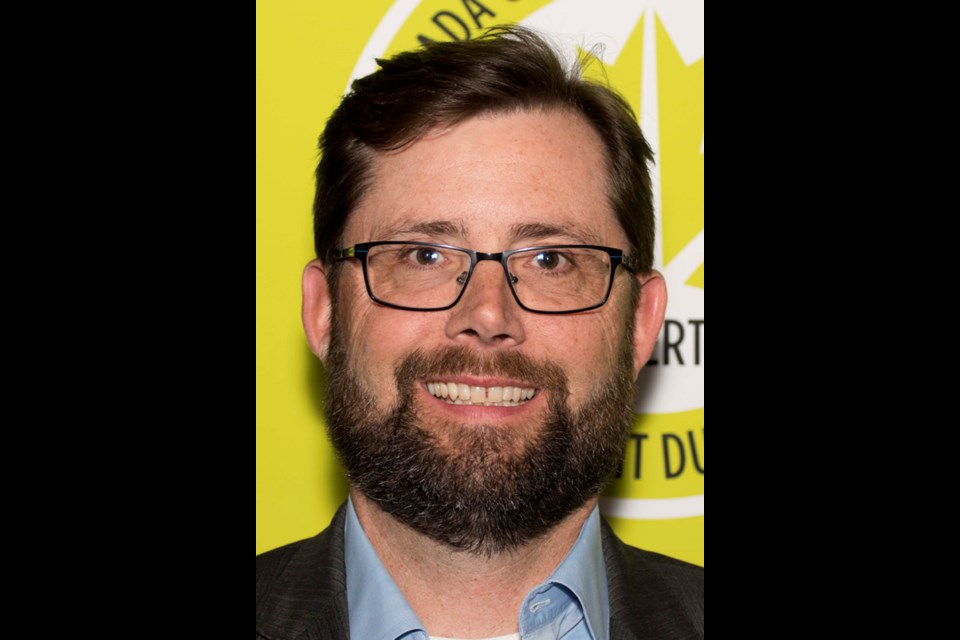Cisco DeVries is done debating climate change.
Speaking at the Alberta Sustainable Building Symposium Oct. 9 at the University of Alberta’s Lister Centre, the Californian and inventor of the property assessed clean energy (PACE) phenomenon now sweeping North America told the hundred-strong audience about how his childhood home was nearly destroyed last year by the massive Ferguson wildfire.
“It burned through a lot of dead and dying trees that were victims of climate change and drought and beetles,” he said. Firefighters spent three days defending his father’s home from it.
“I’m no longer interested in having any more debates about climate change ... It’s true. It’s happening.”
But you don’t have to believe in climate change to act on it, DeVries said. With the right financing systems, people will invest in efficient buildings and renewable power even if they don’t care about the environment.
“We’re now at the point where we’re hiding the kale in the smoothie,” he said – having people help the planet without even realizing it.
PACE smoothie?
DeVries is known as the godfather of PACE, having first introduced the concept in Berkeley, California, around 2008.
PACE is a financing tool that lets owners make energy efficiency or renewable power upgrades to buildings for no money down with the financing repaid through an addition to their property tax bill, said St. Albert’s Leigh Bond, a director with PACE Alberta. The money for the financing typically comes from private investors or (in Alberta’s case) municipal borrowing.
“The up-front money is zero,” Bond said, and the cost stays with the property, so you can sell early without being stuck with the debt. PACE financing is also usually spread out over 25 to 30 years, which is long enough to make those additional tax payments smaller than what you earn in energy savings from the upgrades.
“You’re cash-positive from day one.”
Buildings are the third biggest source of greenhouse gas emissions in Canada, reports the Prairie Climate Centre.
DeVries said every building in Alberta will have to get to net-zero emissions fast if we want to address climate change, and that will cost upwards of $100 billion – that’s 200 Edmonton Oilers teams.
The problem is most people won’t invest in a building just to make it efficient, DeVries said. Most open their wallets to solve a practical problem, like high utility bills or a busted furnace. With PACE financing, contractors can help families address those problems with better insulation, efficient furnaces and other energy efficiency improvements that, due to PACE, are suddenly affordable.
“It’s the kale in the smoothie,” DeVries said – the owner gets what they want and improves the health of the planet in the process.
PACE potential
DeVries said the U.S. has invested some $7 billion in PACE improvements since the idea started, almost all of which is private capital. The advocacy group PACENation estimates these improvements have created some 60,000 jobs and prevented some 9.1 megatonnes of greenhouse gas emissions.
PACE would give every owner in St. Albert the chance to save money on energy and make their buildings net-zero in terms of greenhouse gases, Bond said.
“You save money and you’re addressing the climate change file,” he said.
St. Albert has signed an expression of interest to start PACE here and can kick it off by passing an enabling bylaw, Bond said. The City of Edmonton is expected to start its PACE pilot shortly.
The problem right now is the province, Bond continued. The province’s PACE law says it’s supposed to be administered by Energy Efficiency Alberta, and the UCP has previously said that it wants to eliminate that group.
“Everyone’s waiting for the budget on Oct. 24 to see if EEA is still going to be around,” he said. If it’s not, his group hopes to take over the program.
Don’t worry about getting PACE perfect right off the start, DeVries said – California has tweaked its legislation about eight times and it still needs work. What’s important is to have a law in place and strong leadership to back it up.
“The best thing for PACE is to just start,” he said.




